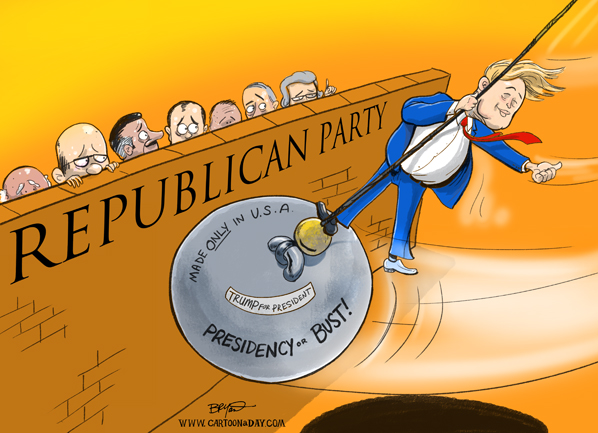Dialectics of China-US Relations: One Hundred Reasons for Conflicts, One Thousand Reasons for Cooperation
Turning conflict into cooperation and using cooperation to control disagreements have become the dialectics of the China-U.S. relationship. Today’s China-U.S relationship, for which three major factors are responsible, calls for leaders from both sides to skillfully utilize dialectics to guide and regulate the development of China-U.S. relations. The three factors are:
History: to avoid falling into the Thucydides trap of conflicts between a ruling power and a rising power, as well as other forms of tragedy involving great power politics;
Reality: to promote solutions for international and regional central issues, to safeguard effective functioning of current international systems; and
Future: to create a more inclusive, reasonable and sustainable world order.
In his upcoming visit to the U.S., Chinese President Xi Jinping will innovatively use dialectics at this juncture in the development of China-U.S. relations to reflect the three previously described factors.
Dialectic One: to resolve conflicts with cooperation. While the U.S. repeatedly accuses China over issues of cybersecurity, the Chinese, in the spirit of mutual respect, equality and mutual benefit, express a willingness to cooperate with the U.S. in order to promote cooperation for combating cybercrime and cyberterrorism, protecting against third-party cyberattacks, and establishing international rules for cyberspace. Cooperation on cybersecurity will very likely become the highlight of President Xi’s U.S. visit.
Dialectic Two: to control disagreement through cooperation. The South China Sea is a central issue of relatively significant disagreement between China and the U.S., and has remained heated since the U.S. pivoted to Asia. However, China and the U.S. are pushing for talks on the Code of Conduct for the South China Sea in order to work together on crisis prevention at sea, communication with surface combatants, and avoiding misjudgment, so as to have relatively effective control over their disagreement.
Dialectic Three: to resolve the fallacy of world order. Henry Kissinger began his book “World Order” by stating that “there has never been a true ‘world order.’” In other words, the existing world order is order that is dictated regionally. As “The Tragedy of Great Power Politics” by John Mearsheimer asserts, there has never existed true world hegemony; even the U.S. is no exception. Pursuing and competing for world hegemony would lead to the tragedy of great power politics, in which the fallacy of world order lies in only being able to achieve regional order while pursuing the establishment of world order, therefore leading to the tragedy of world order. At the same time, Kissinger proposed the idea of “co-evolution” for China and the U.S., calling for China-U.S. cooperation to resolve the fallacy of world order.
In short, turning troubles and challenges into opportunities for cooperation, and constantly developing examples such as that on anti-corruption, will become the new normal for China-U.S. relations. Xi’s strategy toward the U.S. fully utilizes this dialectic, pushing China-U.S. relations forward, which can be summed up in this trilogy:
First is the foundation. The discussion on the U.S.-China Investment Treaty has motivated Chinese capital to migrate into several constituencies in the U.S., allowing the economic relations between both sides to deepen and become more holistic, consolidating their socioeconomic basis, and improving Capitol Hill’s opinion on China. Emphasizing the importance of the states and districts in the U.S. is Xi’s brilliant accomplishment. Seattle will be the first stop on his U.S. visit, where he will meet with local politicians, and attend the U.S.-China Governors’ Forum and the U.S.-China Entrepreneurs Forum, fully demonstrating the cohesiveness of Chinese citizens with those overseas and resuming his role as a charismatic diplomat from his visit to Iowa as the vice president of China.
Second is moderation. The key to new international relations between the two great powers of China and the U.S. is one characterized by 21st century win-win cooperation, realizing the “no conflict, no confrontation, mutual respect, and win-win cooperation” between the two countries, effectively controlling the strategic drift of China and the U.S., and pursuing the best while [purposely] avoiding the best [in order to maintain relations]. Moderation is the key.
Third is top down design. The Free Trade Area of the Asia-Pacific created by China and the U.S. is leading the establishment of world order. It is a top down design outside of the new relationship between China and the U.S that is leading the two countries to face world challenges together, heralding an era of win-win cooperation between the largest developing and the largest developed countries, the largest emerging and the largest hegemonic countries, and the most secular and most religious great powers.
Xi’s historic upcoming visit to the U.S. will provide a rare glimpse into the dialectics for China-U.S. relations, and an understanding of the three factors responsible for it. Countries around the world look forward to the successful completion of the visit.

